TEDDY 2021
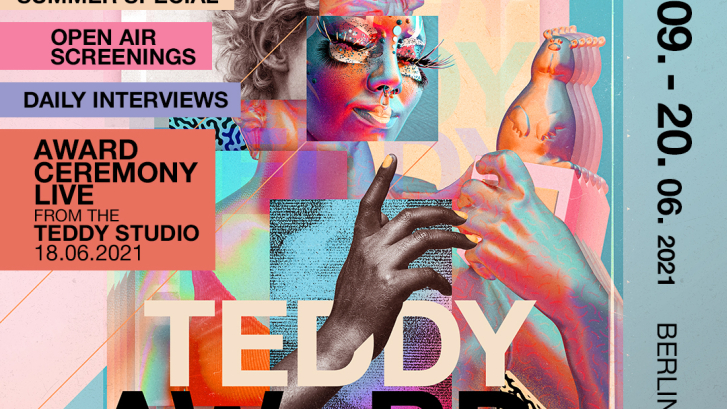
TEDDY AWARD 2021
Wie nahezu alle Veranstaltungen in diesen Tagen der Pandemie muss auch der 35. TEDDY AWARD in veränderter Form stattfinden. Nach der erfolgreichen ersten Stufe - dem Industry Eventvom 1.-5. März 2021 - mit täglichen Live-Studio-Talks, Diskussionen, Panels und Interviews zu aktuellen Filmen und Entwicklungen der queeren Medienbranche, wird der TEDDY AWARD auch im Rahmen des Summer Specials der 71. Berlinale vom 9.-20. Juni 2021 mit Berichterstattung und Interviews zu den queeren Filmen des Festivals präsent sein.
Alle für den 35. TEDDY AWARD nominierten Filme werden im Rahmen der Open Air Filmvorführungen der Berlinale in den Freiluftkinos der Stadt zu sehen sein. Als Höhepunkt der TEDDY Sommer Events feiern wir dann am 18.6.2021 um 19 Uhr das queere Kino mit der 35. TEDDY AWARD Preisverleihung. Aufgrund der anhaltenden pandemiebedingten Einschränkungen für den Veranstaltungsbereich findet die Preisverleihung als reine Online-Veranstaltung statt und wird LIVE AUS DEM TEDDY TV-STUDIO auf teddyaward.tv/live gestreamt.
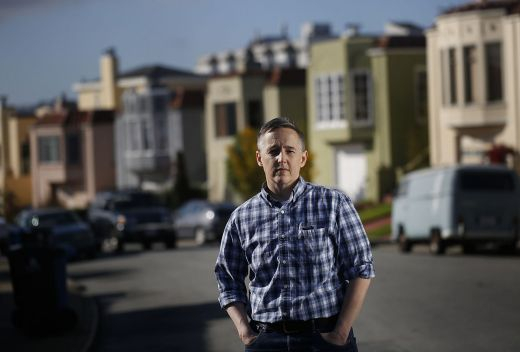
Der Special TEDDY Award 2021 geht an Jenni Olson
Der diesjährige Special TEDDY AWARD geht an die Filmkurator*in, Archivar*in, Filmemacher*in, Autor*in und LGBT-Filmhistoriker*in Jenni Olson für ihre jahrzehntelange brückenbauende Arbeit mit der sie queere Filmgeschichte sicht- und greifbar macht.
Jenni Olson's Begeisterung für das Medium Film manifestiert sich auf unzähligen Ebenen. Sie findet immer das richtige Werkzeug um ihre Neugierde und Faszination in die Praxis umzusetzen. Sie kämpft um die Erhaltung und Verbreitung von filmischen Nachlässen und verwaisten Filmkopien, fördert aufstrebende Talente und schafft ihr eigenes filmisches Oeuvre. Sie greift dabei auf ein queeres Filmnetzwerk zurück, welches sie selbst über die Jahrzehnte durch ihre Kollaborationen und Einfluss gestärkt und erweitert hat. Jenni Olson verkörpert, lebt und schafft Queere Film Kultur.
Die Jury 2021
Drei renommierte Film- und Festivalschaffende wählen in diesem Jahr aus den nominierten queeren Filmen der Berlinale die Preisträger*innen in den Kategorien Bester Langfilm und Bester Kurzfilm aus und vergeben den TEDDY Jury Award.
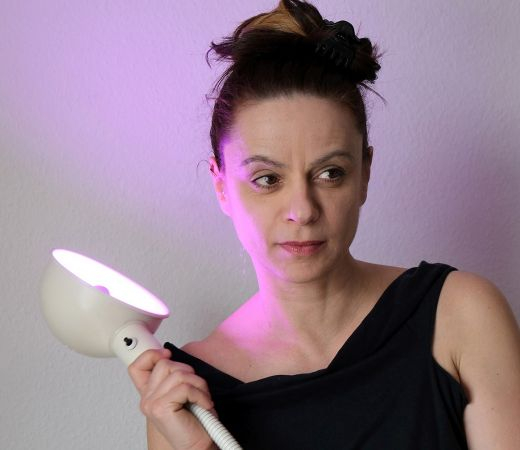
Sylvie Cachin ist eine Filmregisseurin, deren preisgekrönte Filme auf zahlreichen Festivals Erfolge feierten bevor sie sich 2017 als künstlerische Leiterin und Generalintendantin dem Genfer internationalen queeren Filmfestival Everybody’s Perfect anschloss. Nachdem sie in der Schweiz, in Rom und Paris Kunstgeschichte, Geschichte sowie italienische Sprache und Literatur studierte und in Genf ein Filmstudium mit Magister abschloss, arbeitete sie in ihrer eigenen Produktionsfirma als Drehbuchautorin, Kamerafrau, Cutterin und Produzentin. Von ihrem Entdeckungs- und Freiheitssinn angetrieben engagiert sie sich radikal für Autorenkino sowie für queere und feministische Blicke. Durch ihre Leidenschaft für das Erleben und Teilen einer großen Vielfalt an künstlerischen Momenten bietet ihre Programmauswahl jedes Jahr eine neue Magie.
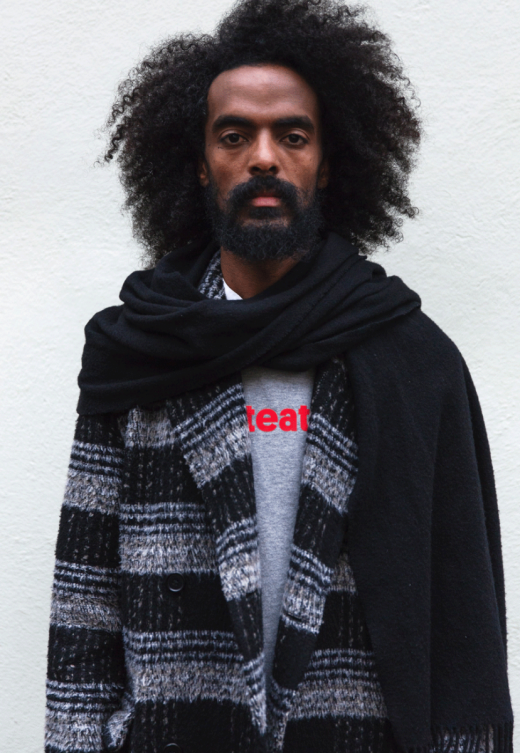
Samuel Girma ist Kurator in den Bereichen Film und Kunst, Gemeinschaftsorganisator und Aktivist und lebt in Stockholm. Zurzeit recherchiert er für einen experimentellen Kurzfilm über James Baldwins Queerness und befindet sich in der Gründungsphase eines Schwarzen Kulturraums für Film und Kunst. Samuel ist Mitbegründer der antirassistischen, intersektionalen und feministischen Plattform Black Queers Sweden. Er wurde in Äthiopien geboren, wuchs dort auf und emigrierte mit 13 Jahren nach Schweden, was seinen Blick auf Schwarzsein und die Erfahrungen, die mit Migration einhergehen, nachhaltig geprägt hat. Ein Großteil seiner Arbeiten, Kunstwerke und Schriften basiert und konzentriert sich auf Erfahrungen Schwarzer Körper.
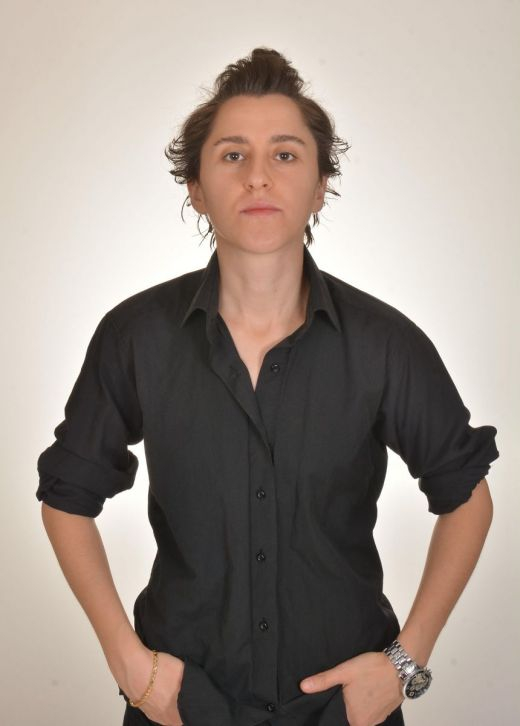
Esma Akyel ist ein*e LGBTI+ und transfeministische*r Aktivist*in aus der Türkei. Esma leitet das Pink Life QueerFest, das 2011 gegründete, erste und einzige queere Filmfestival in der Türkei. Das Festival wird organisiert von der Pink Life LGBTI+ Solidarity Association, der ersten und größten trans Selbstorganisation in der Türkei. Esma ist Vorstandsmitglied der ERA - LGBTI Equal Rights Association for the Western Balkans and Turkey und eine*r der Kurator*innen des QueerFest Berlin. Esma hat einen Magisterabschluss der Bilkent-Universität in Medien- und Bildwissenschaften.
Die Video On Demand Clips unsere Livestreamings, Talks, Interviews und Panels vom ersten Teil der diesjährigen Berlinale im März könnt ihr unter dem folgenden Link ansehen:
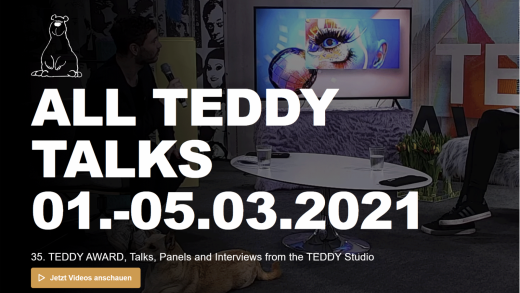
Montag 01.März 2021
14.00
THE SITUATION ROOM
Zsombor Bobák im Gespräch mit Michael Stütz, Head of Panorama der Berlinale
16.00
A DIRECTORS EXCHANGE: our role in writing queer history
Milica Tomović, director of Kelti, Monika Treut, director of Genderation and Eliane Raheb, director of Miguel’s War each take a unique approach to moments of queer history in their films, that not only look back but also forward to what that documentation in time means for our future. Each filmmaker deals with either social, personal or political aspects of (queer) history and sheds a light on- and changes/creates a queer narrative. How specific/individual and self-reflexive are those different approaches and do they, besides portraying of queer protagonists, offer universal options of life in opposition to heteronormativity?
Moderation: Kristian Petersen
Gäste: Eliane Raheb, Milica Tomović, Monika Treut
Dienstag 02. März 2021
14.00 THE SITUATION ROOM (
Part I
&
Part II
)
Zsombor Bobák im Gespräch mit Filmemacher*innen, Festivalmacher*innen und Produzent*innen
16.00
TEDDY Talk – From Live to Dial Up Content: Queer Films Festival Trajectories after moving online
With global lockdowns forcing many queer film festivals to adapt a community event that is made to bring people together, to one without a physical community. How has the path changed for Queer Film Festivals? In order to reflect on how this affected our audiences, our filmmakers and our organizations, an evaluation is required. Did having a wider online presence bring in more viewers and how does the introduction of online screening platforms influence the future of Queer Festival Programming? With the large network of Queer Film Festivals being often the sole distribution for many films, does the element of an online screening modify this network and will this platform be an integral part of our future?
Moderation: Bartholomew Sammut
Gäste: Skadi Loist, Nick McCarthy, Sridhar Rangayan, Sylva Häutle, Muffin Hix, Jay Lin
Mittwoch 03. März 2021
14.00 THE SITUATION ROOM (
Part I
&
II
)
Zsombor Bobák im Gespräch mit Filmemacher*innen, Festivalmacher*innen und Produzent*innen
16.00
TEDDY Talk – A look back to the future: Distribution Strategies in the wake of a Pandemi
Looking back at a number of films that celebrated their premiers at the 70th Berlinale and how their distribution path changed in the wake of covid, global lockdowns and online festivals. From short films to features and documentaries, we speak with Producer Paulina Lorenz, Director Ray Yeung plus industry professionals María Vera from Kino Rebelde, Björn Koll from Salzgeber and Martin Gondre from Best Friend Forever to see how their initial plans changed after the Berlinale. What were the challenges and how did these film teams come together to navigate a strategy when making any sort of plans seemed impossible.
Moderation: Merle Groneweg
Gäste: Paulina Lorenz, Ray Yeung, María Vera, Björn Koll, Martin Gondre
Donnerstag 04. März 2021
14.00
TEDDY SPECIAL– #ACTOUT AND BEYOND
Podiumsdiskussion der Queer Media Society zur Sichtbarkeit von queeren Akteur*innen in den Medien und in der Öffentlichkeit.
Moderation: Johannes Kram
Gäste: Maren Kroymann, Mehmet Sözer, Nicola-Rabea Langrzik , Peter Schulze, Karimah El-Giamal
16.00
TEDDY Talk – Building A Nurturing Work Environment for Queer BIPOC Industry Executives
The film industry can be a minefield for those embodying intersectional identities. 2020 saw a myriad of public commitments to equity and inclusion, but what work has been done internally to ensure that these organizations are equipped to be safe spaces for their LGBTQ+ Black, Indigenous and POC staff and artists? Taking a queer lens to Iyabo Boyd’s provocation to Build A BIPOC Power Pipeline, this Teddy Talk invites industry stakeholders to share their insights on the barriers we face when it comes to succeeding in our roles and advancing our careers.
Moderation: Lucy Mukerjee
Gäste: Bianca Quesada, Masashi Niwano, Campbell X, Andrea Coloma, Sekiya Dorsett
18.00
Queer Your Program: Online Speedy Film Pitches
The annual two minute pitching sessions will be moving online and offered to filmmakers whose films are ready for distribution. Open to programmers, distributors and sales agents; join in to find potentially your next opening night film.
Moderation: Bartholomew Sammut
20.00
Queer Industry Reception goes Online
An annual gathering of industry professionals from the Queer Film Industry, from filmmakers to programmers, to distributors and sales agents. What normally happens in person with a wine in hand and nametags plastered on your shirt, this friendly networking event will now happen online. We shall once again come together as a community, connect and network, chat about the year we had, the films we look forward to and also to have a little drink and a touch of gaiety.
Moderation: Bartholomew Sammut
Freitag 05. MÄRZ 2021
14.00
TEDDY SPECIAL – Invisible Threat – Similarities and Disparities of the COVID-19 pandemic and the HIV/AIDS epidemic
Two global public health crises, two invisible threats to human life. But in what ways compare the COVID-19 pandemic and the HIV/AIDS epidemic? What are the most striking differences? Is it ethical at all to compare the two? And what role can cinema and filmmakers play in tackling the harshest of realities brought by these viruses? Where do their responsibilities and political power lie? A conversation about visibility, power, trauma, memory, and film activism.
Moderation: Zsombor Bobák
Gäste: Wieland Speck, John Greyson, Dr. Alexandra Juhasz
16.00
TEDDY Talk – Queering Common Space
A Debate on Visibility, (Un-)Safe Urban Spaces and the Everyday Archive with POLIGONAL Office for Urban Communication and guests.
In what ways are queerness and queer practices represented in urban everyday life? Is visibility the key to a more inclusive urban future? In the discourse on what kind of city we want to live in queer narratives tend to be underrepresented – with crucial voices remaining unheard. To discuss the power of archiving this talk brings together protagonists from the project QUEERING COMMON SPACE – a digital living archive collecting visual and acoustic representations and documentations of queer memories, encounters and stories from common (un-)safe spaces in the cities of Tbilisi and Berlin.
Moderation: Christian Haid, Lukas Staudinger
Gäste: Liz Rosenfeld, David Apakidze, Nini Goderidze, Nancy Naser Al Deen, Tzeshi Lei